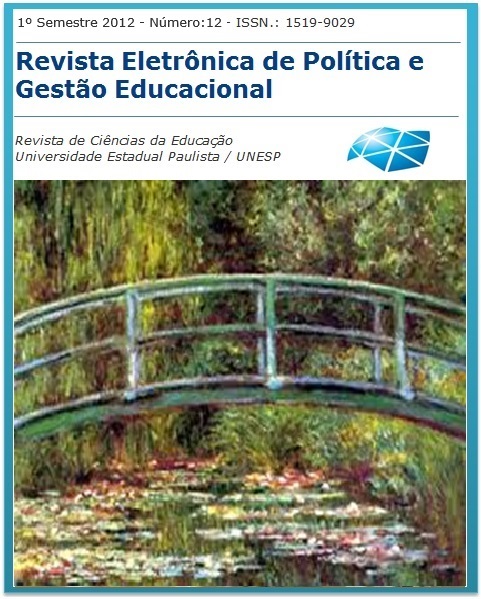Politicas publicas, a atuação docente e o desenvolvimento de habilidades: géneros e sexualidades na educação básica
DOI:
https://doi.org/10.22633/rpge.v0i12.9326Palavras-chave:
Gêneros, Sexualidades, Educação,Resumo
Este artigo tem por objetivo discutir a diversidade de gêneros e sexualidades no ambiente escolar. Por meio das discussões das Ciências Sociais mostramos algumas das interpretações sobre a cultura dos gêneros no decorrer da história ocidental e que podem servil* como aliadas na desconstrução dos estereótipos sobre as masculinidades e feminil idades. Partindo da experiência como professor da Educação Básica no ano de 2011. a política institucionalizada vinculada pelos cadernos "Diversidade Sexual na Educação: problematizações sobre a homofobia nas escolas" produzido pelo Ministério da Educação, o guia "Gênero e Diversidade na Escola: formação de professoras es em gênero, sexualidade, orientação sexual e relações étnico-raciais" elaborado pela "Secretária de Políticas para as Mulheres e Sexualidade" da Secretaria de Estado da Educação do Paraná, as discussões de gêneros e as teorias feministas foram utilizados como caminhos pedagógicos para contribuir na formação de uma educação emancipadora. assim como. no desenvolvimento de habilidades com relação à temática sobre diversidade sexual. Deste modo. notamos que a escola reproduz ainda consigo os preconceitos e estereótipos de gêneros e sexualidades, apesar dos inúmeros avanços que tivemos no decorrer do século XX no que concernem as políticas públicas em defesa dos direitos das mulheres, também, de lésbicas, gays. bissexuais, travestis, transexuais e as políticas que buscam promover o debate escolar sobre a pluralidade sexual.
Downloads
Downloads
Publicado
Como Citar
Edição
Seção
Licença
Copyright (c) 2017 Revista on line de Política e Gestão Educacional

Este trabalho está licenciado sob uma licença Creative Commons Attribution-NonCommercial-ShareAlike 4.0 International License.
Manuscritos aceitos e publicados são de propriedade da Revista on line de Política e Gestão Educacional. É vedada a submissão integral ou parcial do manuscrito a qualquer outro periódico. A responsabilidade do conteúdo dos artigos é exclusiva dos autores. É vedada a tradução para outro idioma sem a autorização escrita do Editor ouvida a Comissão Editorial Científica.











